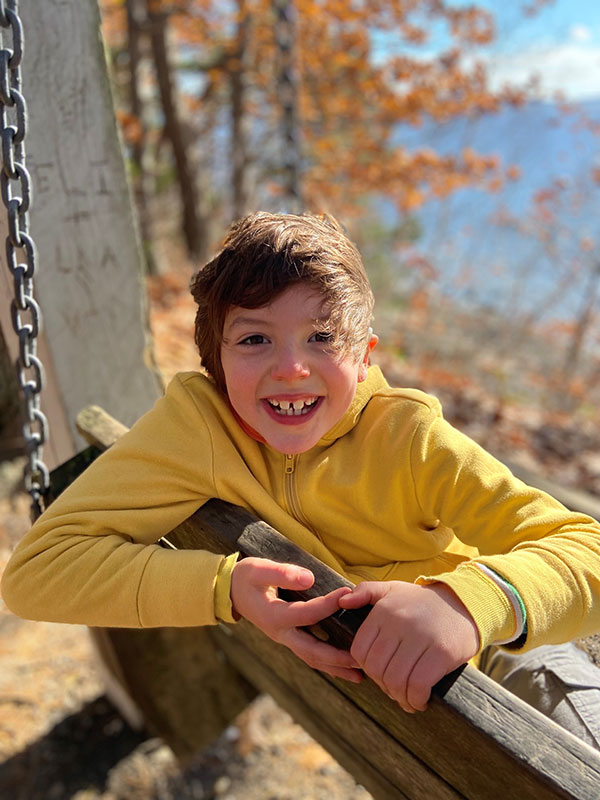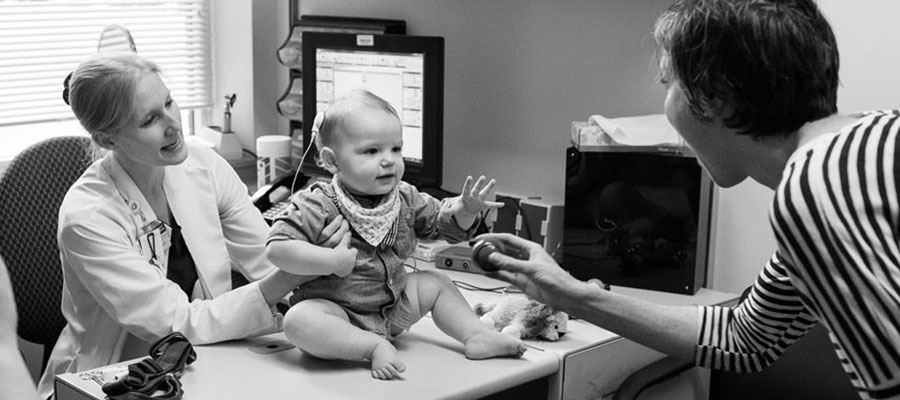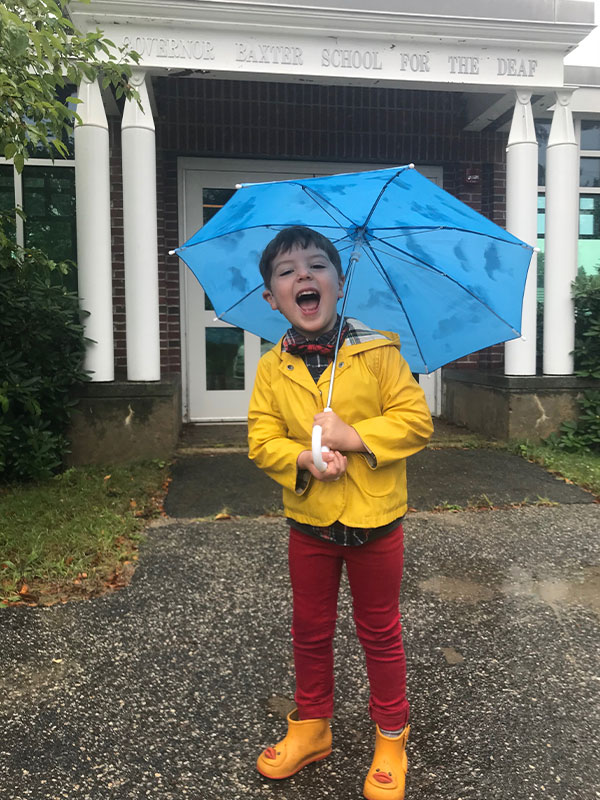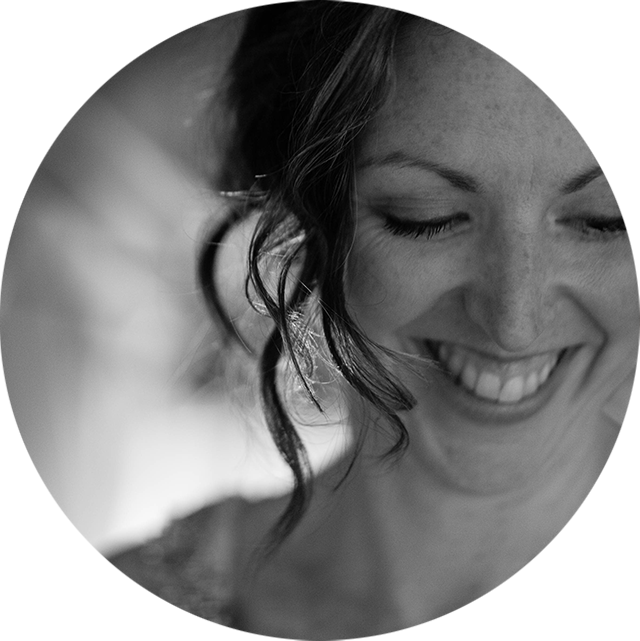It was also during this time that we started to have incredible optimism for our son's hearing potential.
Finding Our Spectrum of Sound

It was a life-changing moment, hearing a doctor tell me that my little boy, barely 24 hours old, was probably deaf.
As older, first-time parents, my husband and I took every precaution throughout my pregnancy. It was a shock to learn that our tiny, beautiful baby was failing his hearing screenings.
My husband and I are both designers, but he is also a musician. Music has always been in the fiber of our beings, and it played a significant role in our courtship years earlier, with mixtapes and soundtracks, concerts and fireside sing-alongs. We couldn't imagine raising a child in a world devoid of sound.
A diagnosis and a hope
The coming months were a blur of medical appointments, failed auditory brainstem response tests (ABRs), and uncertainty. We were heartbroken by the possibility of hearing loss and overwhelmed by early parenting in general. A colleague of my husband's connected us to her dear friend at Massachusetts Eye and Ear Infirmary.
It wasn't until three days before Christmas that we found ourselves in Boston with a confirmation of Percy’s profound sensorineural hearing loss. We spent the coming days, weeks, and months traveling to Boston. Earmolds. Hearing aids. MRIs. EKGs. CT scans. Tubes. Tests, tests, tests. But it was also during this time that we started to have incredible optimism for our son's hearing potential. We learned that Percy was an ideal candidate for cochlear implants and that Advanced Bionics has been at the forefront of innovation every step in their development.
By July, we were ready to undergo the actual implantation. It was a lot of waiting that day. Still, we were so confident and happy with our incredible team of doctors and nurses, especially Dr. Michael Cohen, our pediatric otolaryngologist, who performed the surgery and still sees Percy for annual checkups. After a few weeks of healing time, we visited our audiologist for activation.
Percy hears
We had been advised to temper our expectations that day. Because profoundly deaf babies may have never experienced sound, they have no comprehension of verbal communication, or that this new sensory experience has meaning. The activation of the CI processor is intentionally gradual as the brain learns to identify sounds and decipher their nuances.

I think we went into Percy’s appointment with some hope for a storybook reaction, and we learned that turning the implants on was only the beginning. There was a long road ahead of diligent and consistent coaching and therapy to ensure the best results. But even by the end of that first night at home, we were seeing Percy react to sounds with laugher and smiles. Now, when we look back at videos, his reactions do feel extraordinary. Percy could hear us!
In the coming weeks and months, Percy learned to make sounds and string basic words together. We met with a speech therapist and Teacher of the Deaf every week. She helped us shape Percy's perception of spoken language and build his vocabulary. She wanted Percy aligned with his peers by his second birthday, so we narrated our lives like radio broadcasters and submerged him in a world of sound. We played games and practiced bimodal communication where we signed and spoke at the same time.
Because cochlear implant technology has developed rapidly, and the FDA approved age limit for pediatric cochlear implants has gotten younger and younger, we struggled to find age-appropriate solutions to some of our challenges. For example, we live in Maine, and when winter came, we couldn’t find hats that would allow Percy to keep his headpieces in place. He was only 15 months old and didn’t have the language to communicate when his devices weren’t working. We had to decide between warm silence and cold sound.
We struggled to find age-appropriate solutions to some of our challenges.
As designers, we tapped our resources and worked together to develop a winter hat with special pockets for Percy's CI processors. We made little toys to represent the low, middle, and high frequency sounds in spoken language. Six months after his activation, Percy was already talking more than any of the children in his daycare classroom.
Giving back
We are fortunate to live just a couple of miles from the Maine Educational Center for the Deaf and Hard of Hearing, which provides high quality, state-of-the-art services to children with hearing loss. After connecting with them, and the families in that community, we decided to share some of the solutions we've come up with to make our own lives easier since Percy received his bionic ears.
In 2018, we launched a successful Kickstarter campaign to fund the initial run of products. Since then, we've been pleased to provide language learning tools and warm, comfortable hats to families of deaf and hard-of-hearing children who use auditory assistive technology. We also started an initiative to donate a winter hat to every child implanted at Massachusetts Eye and Ear, the hospital where Percy received his cochlear implants. Every purchase facilitates further product development and donations to parents and providers of children with hearing loss. We call this project CoAmplify.
Percival Roosevelt Wilkinson is now seven years old and in the second grade. He hears, he speaks, and he loves to sing along to the Beatles. He's learning to play the guitar, the drums, and the piano. Every single day, we think about how lucky we are to have had this opportunity to give our son hearing. He's such a special, amazing little boy, and we're having an absolute blast watching him learn and grow.

